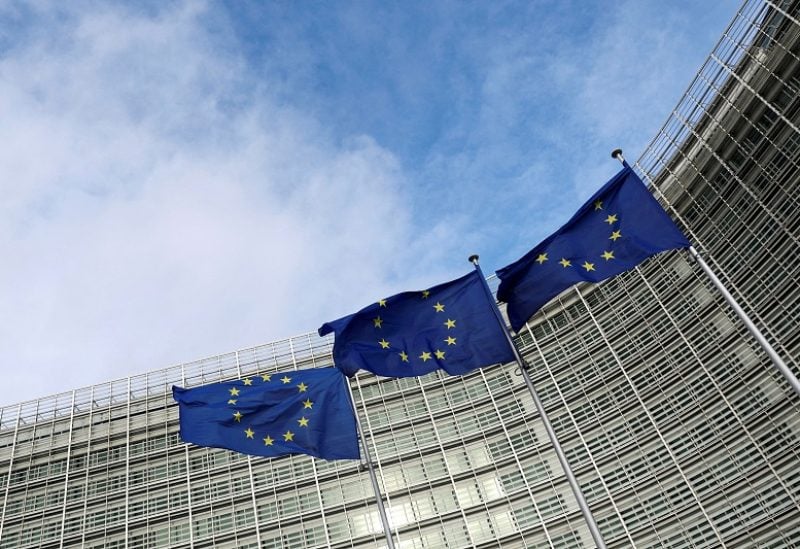
FILE PHOTO: European Union flags fly outside the European Commission in Brussels, Belgium November 8, 2023. REUTERS/Yves Herman/File Photo
The European Union delegation to Lebanon distributed the following statement:
In these times of uncertainty and instability in the region, the European Union reaffirms its support to the people of Lebanon and has decided to allocate 205.5 million Euros to address several priority areas to support the country’s stability and recovery.
As a first priority, the European Union will continue supporting Lebanon with enhancing border management, by offering financial and technical assistance to align it with international standards. This will contribute to Lebanon’s overall security and stability, in the face of regional uncertainty and threats.
In this context, it is crucial for Lebanese public institutions to be well equipped to address the growing needs of the people of Lebanon. This starts with the implementation of necessary economic and structural reforms, in line with recommendations of the International Monetary Fund. To address the lack of resources needed to undertake such reforms, the European Union will help Lebanon implement fiscal policy and public finance management measures that increase public revenues and improve the economic conditions in the country once the IMF programme is in place.
Moreover, the European Union will continue supporting Lebanese public institutions in enhancing governance, accountability and transparency when running public affairs and providing basic services to the population. This includes improving the management of the water sector by introducing monitoring systems for water extraction and upgrading existing customer databases. Such practices of calculating the actual cost of water and ensuring accountability in the process will support the sector in becoming administratively and financially self-sufficient.
The European Union will also support measures to respond to the ongoing electricity crisis in Lebanon, by encouraging renewable energy and energy efficiency investments by SMEs.
Additionally, the European Union will assist Lebanon in strengthening electoral processes by enhancing the capacities of public institutions to conduct credible, transparent and inclusive elections, within constitutional deadlines. The European Union will also support initiatives in favour of a vibrant robust civil society including in the field of culture with the main goal to foster social cohesion and democratisation.
To address the growing needs of vulnerable people in Lebanon, the European Union will continue, as in previous years, to provide indispensable support in education, social protection, and water sectors to strengthen also the capacity of local authorities to provide services in a sustainable manner.
Ambassador of the European Union to Lebanon Sandra De Waele said: “More than ever, sound governance and strong State institutions that are effective, transparent and accountable to their citizens, are needed in Lebanon. With the tools at our disposal, we are committed to supporting Lebanon in strengthening its State institutions and modernising its public administration